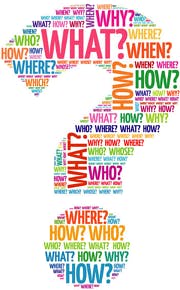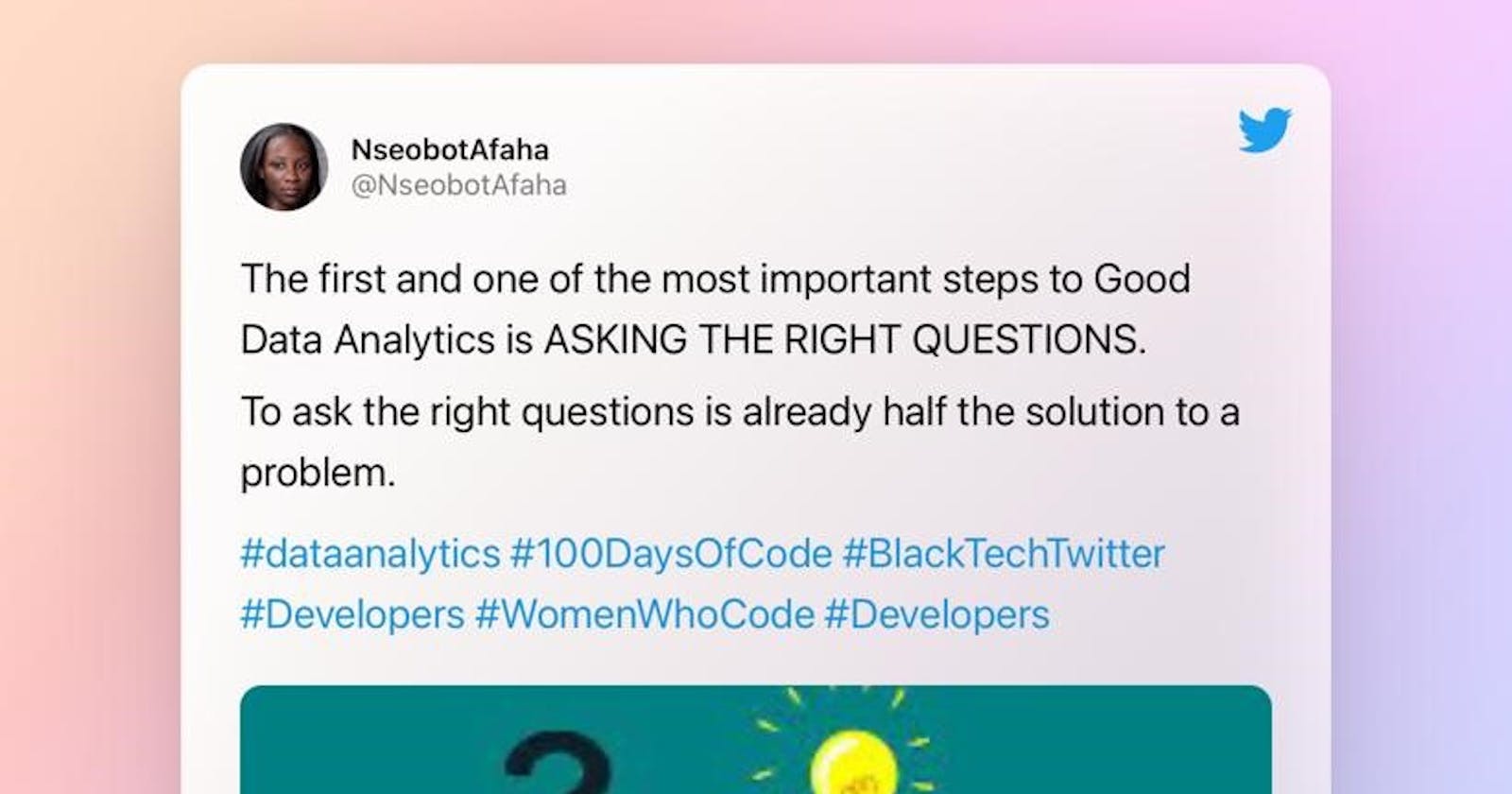INTRODUCTION
You can never miss your way if you can ask the right questions
Asking the right questions will not only simplify the problem statement but it will go a long way into solving it. One of the most important qualities a Data Analyst should possess is ability to ask stakeholders the right questions.
Getting the right requirements from the right people on time can be difficult and cumbersome. The process can be ineffective if not approached properly.
The moment to ask the right people the right questions for the right Business Intelligence Project can vary depending on your situation. But it can always be improved by further exploration. Using different questions and techniques to extract the correct requirements from your stakeholders will empower you to help them make better business decisions.
Questions like:
● What problems are we trying to solve?
● What are the most strategic questions that need to be answered?
● Who are those to benefit from the solutions?
● Is there an alternative solution to this?

Why Ask The Right Questions?
If you ask the wrong questions, you'll almost certainly get the wrong answer, or at least something that's not quite what you're looking for.
The ability to ask the right question is central to effective information exchange. You can improve a wide range of results by asking the right questions in the right situation. You can, gather more information and learn more, manage people more effectively, and help stakeholders solve their business problems as well.
The following reasons should encourage you to ask more great questions when carrying out Data Analysis:
- Better Relationship : people generally respond positively when asked what they want or what their opinions are. Assume you ask your manager or client affirmatively, "Tell me what you'll like to get from this analysis," you will contribute to the development and maintenance of an open dialogue.
- Avoiding misunderstandings: good questions to gives clarification, particularly when the lack of understanding can lead to significant consequences. And to make sure that you avoid jumping to conclusions, always ask questions.
- Questions are essential to the Data Analysis method: Data Analysis is a process of collecting data, analyzing it, and drawing conclusions. Throughout the process, researchers ask questions about what kind of data they’re finding, what the data might mean, and the methodology to employ for adequate insights. Questions beginning with “how,” “what,” and “why” are very common. Taking the time to consider these questions ensures the data manipulation process is as complete as possible.
- Questioning broadens your mind: If you lived your life without ever asking questions, your world would be very small. Asking questions – whether it’s about cause, effects, outcomes, or how the results will impact decision making – gets you thinking about new possibilities. It opens your mind to other perspectives. That’s an important part of Data Analysis.
In Conclusion..
Gathering information is a fundamental human activity; we use information to learn, solve problems, make decisions, and better understand one another.
Questioning is the key to learning more, and without it, interpersonal communication can fail.
After vital questions, the next important step is attention to details. To notice trends, patterns, causes and effects. With these, Any data analysis problem is half solved.
Make sure that you give the other person you're questioning enough time to respond. This may need to include thinking time before he or she answers, so don't just interpret a pause as a "No comment" and plow on.
Skillful questioning needs to be matched by careful listening so that you understand what people really mean with their answers. Your body language and tone of voice can also play a part in the answers you get when you ask questions. Therefore always ensure to do it right.
Always remember...
data itself is useless “ what makes it make sense is an ability to look beyond the numbers to draw insights.
How do you draw insights without adequate information? and how do you gain information without asking questions?

